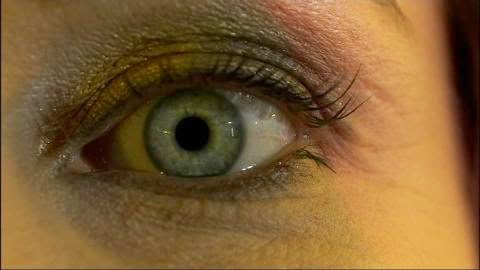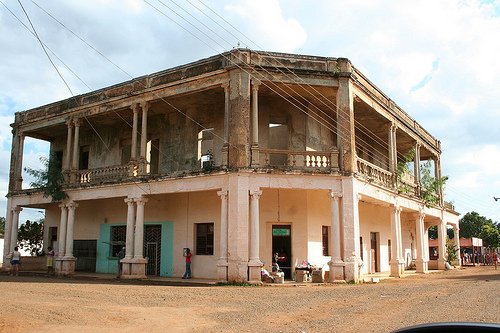|
Posted: 22 Jan 2013 08:13 AM PST
Not even the most purposefully ignorant can today deny that the Castro dictatorship controls Venezuela's government.
In the same vein, does anyone really believe it doesn't also control Colombia's FARC terrorists? As a reminder, in 2011, the FARC named Timoleon Jimenez, a hardliner known as Timochenko, as its new leader. Timochenko, who received military and political training in Cuba, has always been considered among the most uncompromising FARC leaders, according to Colombian intelligence services. Chavez's treatment and the so-called FARC peace negotiations -- both in Havana -- are more than mere coincidences. They are about power and control by the Castros. Some habits die hard. From The Wall Street Journal: Colombia's FARC Rebels Blow Up Pipeline Colombia's largest rebel insurgency blew up an oil pipeline in the south of the country, an attack that underscored the end Sunday of a two-month unilateral cease-fire declared by the guerrilla group during peace talks with the government that could end five decades of bloody conflict. An official with state-run oil firm Ecopetrol SA said the Revolutionary Armed Forces of Colombia, known by the Spanish acronym FARC, were likely behind the attack against the Transandino pipeline, which can transport 46,000 barrels a day and is located in the southern province of Putumayo. The bombing against the pipeline, which took place Sunday evening, is an opening salvo that marks the end of two months of relatively few military actions by the FARC. The guerrilla group declared a unilateral cease-fire in November during peace negotiations with the government that are taking place in Cuba. The government has been girding for what it says could be a wave of attacks by the guerrillas designed to strengthen their position in the negotiation table now that the cease-fire is over. Attacks against the country's shaky oil-transportation infrastructure can be especially damaging to the Colombian economy, which relies heavily on oil exports. A surge in bombings against oil pipelines is one of the main reasons for why the country's oil production slowed in 2012 and was unable to keep up with the double-digit growth seen in previous years. |
|
Posted: 21 Jan 2013 06:37 PM PST
By Jackson Diehl in The Washington Post:
Chavez is not going quietly Imagine that Barack Obama failed to appear for his swearing-in Monday — and had not been seen or heard from in a month. Imagine that Vice President Biden informed the nation that Obama, though sequestered in a foreign hospital, would remain president and would be sworn in at some unspecified date. Suppose that requests by Republicans for information on the president’s condition were rejected, even as Biden and leading Democrats huddled with foreign leaders to discuss a possible transition. It’s impossible to imagine a political situation so lawless, scary and downright surreal — unless you are a citizen of Venezuela, where the apparent death throes of Hugo Chavez are unlike anything that even the continent of magical realism has ever seen before. Monday marks the 42nd day since Chavez departed for Cuba, saying he was to undergo new surgery for the cancer he has battled for more than 18 months; it will be the 11th day since his presidential term expired and he failed to appear for the inauguration of a new one. During that time Venezuelans have heard and read no words and seen no photographs of their ruler — not even a tweet. But his closest aides have been regularly trooping to Havana for meetings with Raul and Fidel Castro, who are openly steering Venezuela’s crisis. Last week Chavez’s vice president, Nicolas Maduro, produced what he said was a Chavez-signed decree appointing a new foreign minister, prompting a furious debate about whether the purported signature — the closest thing to a Chavez sign of life since Dec. 10 — was authentic. All this would be more amusing if the stakes were not so high. The demise of Chavez — if that is what is to happen — could open the way to epochal change in a region that for a decade has been divided, and sometimes polarized, between rapidly growing and modernizing democracies such as Mexico, Chile and Brazil and a bloc of authoritarian-minded, anti-American, populist throwbacks led by Venezuela. To be sure, the modernizers won the ideological battle long ago — Chavez’s popularity ratings among Latin Americans are lower than any leader in the hemisphere other than Fidel Castro. But thanks to Venezuela’s oil wealth, Chavez has managed to hold together a bloc that includes Bolivia, Ecuador, Nicaragua and, to a lesser degree, Argentina. Their leaders have followed his lead in entrenching themselves in power, persecuting opponents and forging alliances with Iran. They are well compensated for their trouble: Daniel Ortega receives and personally disposes of $500 million a year from Chavez, an amount equal to 7 percent of Nicaragua’s gross domestic product. Then there is Cuba: Chavez supplies the Castros with 100,000 barrels of oil a day and a total subsidy worth more than 5 percent of Cuba’s GDP. Without that lucre, the communist regime might finally collapse. No wonder the Castros are doing their best to keep their golden goose alive — and to try and install another when he goes. Chavez’s last public act was to name as his successor Maduro, who has been a Cuban protege since his post-high-school days. If the regime has ignored the Venezuelan constitution, which calls for the National Assembly president to take over when the president is incapacitated, it’s because that would promote an alternative: Diosdado Cabello, who is closer to the Venezuelan military than to Havana. The likely Cuban strategy is to wait for Chavez’s death, then hope that Maduro can, by hook or crook, win the snap presidential election required by the constitution. It’s a slightly dangerous strategy: Opposition leader Henrique Capriles, who won 45 percent of the vote in October’s presidential election, has polled higher than Maduro in the past. But Brazil and the United States have warned the regime against trying to avoid an election, and Maduro will be able to count on Chavez sympathy votes immediately after his death. The Obama administration appears to have joined much of the region in betting that Chavez’s regime will outlive him. Senior State Department officials already have been in touch with Maduro to discuss ways to improve relations. When Panama’s representative to the Organization of American States used a plenary session last week to denounce the manipulations that have kept Chavez in office, U.S. Ambassador Carmen Lomellin replied that the United States would not interpret the Venezuelan constitution. An opposition upset might cause upheaval in Cuba, and the dissolution of the populist bloc. But it might not save Venezuela from chaos. Whoever succeeds Chavez will be cursed by his 13-year legacy: a 50 percent drop in the oil exports that supply 94 percent of Venezuela’s foreign earnings; severe shortages of consumer goods; inflation that has reached an annual rate of 48 percent; a quintupling of murders that has made Venezuela more dangerous than Iraq; and hemorrhaging foreign reserves that will soon force a painful currency devaluation. Tragically, Chavez may be dying just in time to shift the blame for these disasters onto his successors — and ensure that he, like Argentina’s Juan Peron, haunts his country long after his demise. |
ROSAS Y BESOS, MI DÍA DESPUÉS AL DÍA DEL LIBRO
-
(No vaya a ser, por favor, que no hayas podido enterarte)
Un hombre, más sensible que patético, a la busca de sí mismo y de los
demás, a la búsqueda d...
Hace 18 horas
















No hay comentarios:
Publicar un comentario